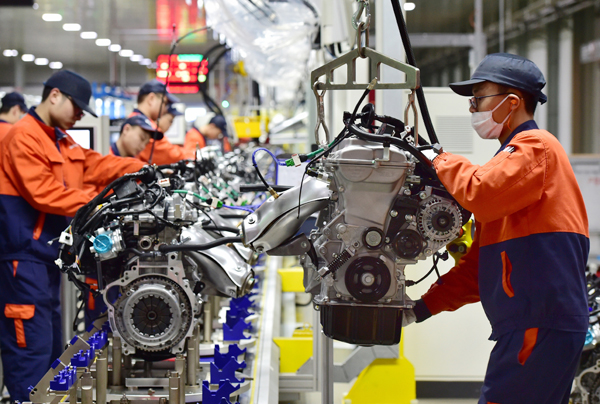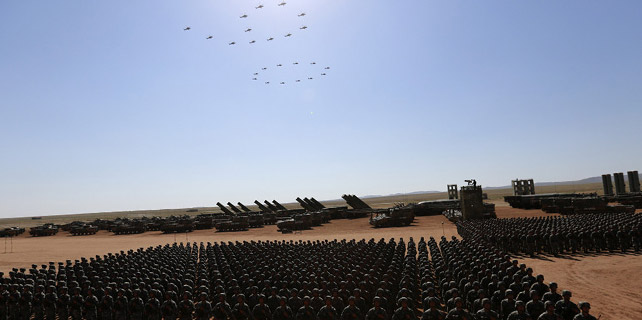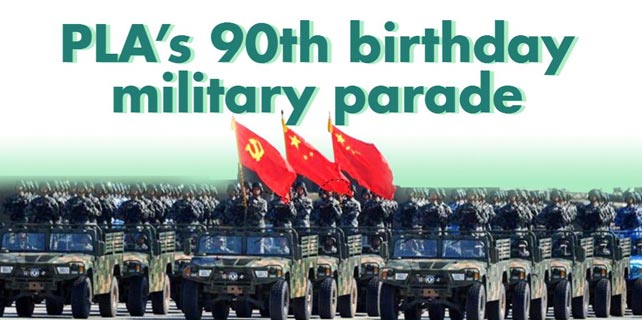China's economy on positive track despite manufacturing data fluctuation
 |
|
Technical workers assemble engines at a plant in Yiwu, Zhejiang province.[Photo provided for China Daily] |
BEIJING - China's economy remained stable and on a positive track despite a seasonal fluctuation in the country's manufacturing activity in July, official data showed Monday.
The country's manufacturing purchasing managers' index (PMI) came in at 51.4 in July, down from 51.7 in June, the National Bureau of Statistics (NBS) said Monday.
That was the 12th straight month of expansion for the country's manufacturing sector.
A reading above 50 indicates expansion, while a reading below reflects contraction.
"The PMI drop in July was a normal fluctuation and did not tell much about the cyclical trend of China's economy," CITIC Securities said in an analysis note. "The positive economic outlook remained unchanged."
PMI has stayed between 51 and 52 over the past seven months, and the July reading was basically consistent with the average of the first half of the year, said NBS senior statistician Zhao Qinghe.
Ongoing hot weather across China, rainstorms and floods in certain regions, and the fact that some companies conduct routine equipment checks and repairs during summer jointly contributed to the monthly PMI decline, Zhao said.
Chen Zhongtao, an analyst with China Logistics Information Center, called the July reading a seasonal fluctuation.
"It's difficult to avoid volatility at such a relatively high level," Chen said, noting that PMI has hovered above 51 for 10 months in a row.
The PMI sub-index for large-size companies was relatively unaffected by the seasonal disruption, rising for a second month to 52.9 in July, while those for smaller firms fell below 50, the NBS data showed.
Sub-indices for production and new orders came in at 53.5 and 52.8, respectively, down from 54.4 and 53.1 last month, but the narrower gap between the two suggested an improved supply and demand relationship, Zhao said.
The aggregate demand in the Chinese economy remained stable, as real estate investment slowed mildly, investment in manufacturing held steady and that in infrastructure maintained relatively fast growth, according to China Merchants Securities.
External demand growth retreated, with the sub-index for new export orders falling to 50.9 from 52 in June, but the reading has stayed above 50 for the last nine months.
The structural upgrade of the manufacturing sector continued. High-tech and equipment manufacturing led the activity expansion in July, with their sub-indices standing higher than the overall sector's PMI.
In contrast, the sub-index for oil processing and coking as well as the non-metal mineral products industry stayed below 50 for the third month in a row, affected by overcapacity and restructuring.
"The shift between the old and new momentum of growth is accelerating," Chen commented.
Despite slower manufacturing activity expansion, firms continued to increase purchases with stronger confidence in their future growth, according to Zhao.
The sub-index for the quantity of purchases rose to 52.7 from 52.5 in June, while that for expectations on production and business operations climbed to 59.1 from 58.7, the third consecutive month of increase.
For the country's non-manufacturing sector, growth momentum remained robust though it moderated somewhat, with its PMI standing at 54.5 in July, down from 54.9 in June.
Monday's data came after a slew of economic indicators that showed China's economy is steadily stabilizing and improving.
Official statistics put China's GDP growth at 6.9 percent in the first two quarters of this year, up from 6.8 percent in the fourth quarter of 2016, beating market expectations.
For China's macro-economic policy makers, the pressure of supporting growth is gradually lessening, according to CITIC Securities.
It predicted no changes to China's monetary policy stance, which has been set as prudent and neutral for 2017.









